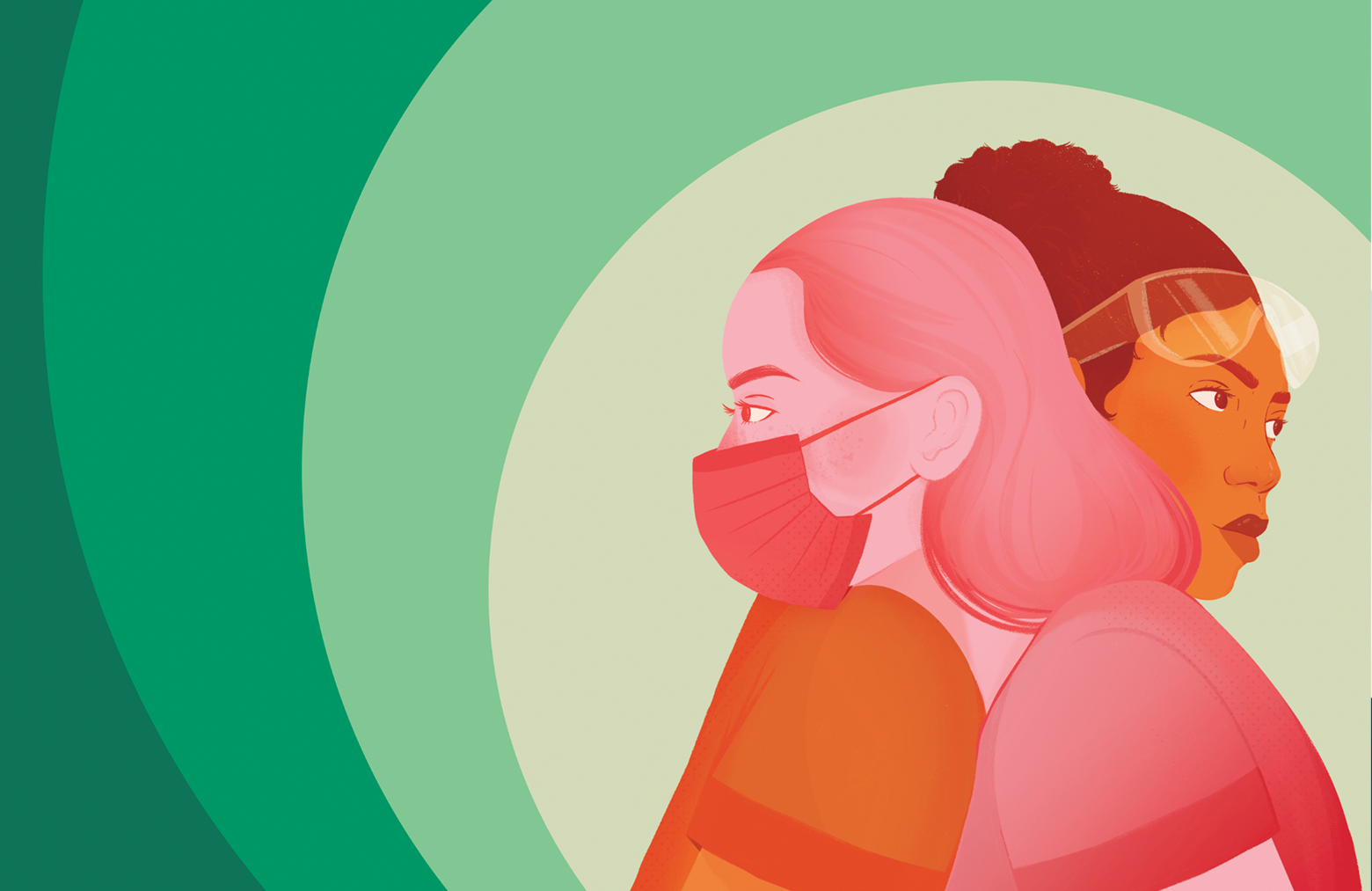Introduction
International philanthropy usually brings to mind famine relief or using Canadian dollars and expertise to build wells and irrigation systems in Third World countries; however Canadian expertise can be used to protect lives and improve living conditions in another way-by sending Canadians to observe and report back on murders, disappearances and torture in other countries so that international pressure can be mobilized to end such abuses.
In September, 1994, I participated in a Canadian fact-finding mission designed to investigate the human rights situation in Colombia and Peru, as part of a multi-disciplinary group organized by the Inter Church Committee for Human Rights in Latin America (ICCHRLA). I participated as a representative of the Canadian Lawyers Association for International Human Rights (CLAIHR).
The Role of CLAIHR
The Canadian Lawyers Association for International Human Rights is a growing association of Canadian lawyers working internationally to advance human rights through the process of law. It was founded in 1991 by a small group of Ottawa lawyers interested in using their legal expertise to assist lawyers and organizations abroad who were working to protect human rights. CLAIHR is a charitable organization created under the Corporations Act (Canada).
Since 1991, CLAIHR has focused on establishing working relationships with human rights organizations in Canada and around the world and on carrying out specific projects in partnership with these groups. Projects have included election monitoring in El Salvador, organizing an internship program permitting law students to work with human rights groups in developing countries, and formulating proposals for legislative and constitutional reform.
CLAIHR is funded through organizations such as the International Centre for Human Rights and Democratic Development (ICHRDD), CIDA, and donations and membership fees. CLAIHR is known to other human rights organizations in Canada through its participation in activities such as the consultations with NGOs held annually by the Department of External Affairs. In early 1993, ICCHRLA approached CLAIHR, to see if CLAIHR would be interested in sending a representative on a fact-finding mission to Colombia and Peru, as legal expertise and analysis were elements ICCHRLA wanted to include in the mission. CLAIHR accepted.
The Role of ICCHRLA
The Inter Church Committee on Human Rights in Latin America was founded in 1973. Its members include all the major Canadian churches, e.g., the Anglican Church, the Canadian Council of Churches, the Presbyterian Church, the Religious Society of Friends, the Roman Catholic Church and the United Church of Canada.
ICCHRLA maintains close relationships with churches, human rights bodies and other organizations in Latin American countries and in Canada. Through regular on-site visits and monitoring of reports, ICCHRLA assesses the human rights situation in these countries on a continuing basis. In addition to producing a regular bulletin and in-depth reports, ICCHRLA also responds to requests for action in urgent situations and attempts to work on the underlying causes of human rights violations. ICCHRLA shares its publications and recommendations with its own church members, with the Canadian government and the public at large, with NGOs, and with international bodies such as the United Nations (UN) and the Organization of American States (OAS). In addition to information-sharing and analysis, ICCHRLA participates in certain lobbying activities to the Canadian government, the UN and the OAS, urging them to exert pressure on countries which consistently violate human rights.
ICCHRLA receives the majority of its funding from its member churches and also receives donations from individuals. Although ICCHRLA is not itself a charity for tax purposes, it is affiliated with the Canadian Council of Churches which is a registered charity.
Organizing the Fact-Finding Mission
Although ICCHRLA staff and board members had made several visits to both Colombia and Peru, ICCHRLA felt that it would be desirable to organize a fact-finding mission involving a wider range of sectors. This would provide several benefits-the interactions and analyses would reflect a broader range of experiences and areas of expertise; the delegation would have more credibility and influence while in Peru and Colombia, as well as back in Canada; and members of a larger, more diverse group could share information with their constituent organizations, resulting in a greater impact and sphere of influence. It was hoped that by increasing the number of people who would have had direct experience, particularly of Colombia, which is not well known here, more people in Canada would become aware of the situation with regard to human rights in the countries visited.
ICCHRLA approached a number of organizations in Canada that it knew were involved in human rights or in “solidarity” activities with Latin America. A union representative was sought because one of the objectives of the mission was to investigate the links between civil and political rights and economic and social rights. It was also known that union members were being targeted in Colombia, both by authorities using anti-terrorist laws to restrict organizing, and by para-military death squads. The United Steelworkers of America was chosen in part because they have a Development Fund which funds specific projects in Latin America and also because they have a commitment to international as well as local issues. In addition to a representative from the union sector, a representative from the churches was sought and the Program Officer dealing with internal displacements and refugees for the United Church of Canada was chosen because of the problem of internal displacement in both countries. CLAIHR was approached because of the desire to have a legal analysis, both of anti-terrorist legislation and of the violations of international human rights in both countries. Quebec has had a long history of involvement in solidarity work with Peru, so the umbrella organization of Quebec NGOs working in the area was approached. Finally, ICCHRLA wanted to send one of its own board members, and its Executive Director.
Delegates from the various organizations were chosen by the organizations in consultation with ICCHRLA. Factors that were considered included: gender (four men and two women); fluency in Spanish or other language capabilities (three members spoke Spanish, three spoke French, five spoke English); Latin American or overseas experience; experience in, and commitment to, human rights; a high public profile combined with ability and willingness to participate in follow-up activities; physical stamina; compassion; and ability to relate well to others.
The entire budget for the trip was $26,000, including $3,000 for the production and translation of the final report. The mission was funded from a variety of sources including churches, development organizations, unions, and community organizations. Funds were contributed by ICCHRLA, the United Steelworkers of America, the United Church, Scarborough Foreign Missions, Ia Confederation des syndicats nationaux, le Regroupement solidarite Quebec-Perou, OXFAM, CUSO, and CLAIHR. Funding was arranged by the Executive Director of ICCHRLA over a period of several months and, while it was time-consuming to arrange contributions from such a variety of sources, financial commitment was seen as a way of ensuring continuing interest in the project and in its findings. The six members of the delegation volunteered their time, but their employers all continued to pay them while they were on the mission.
The foundation for the mission had been laid by ICCHRLA through many years of work in Latin America and, in particular, annual visits to Peru (since 1984) and to Colombia (since 1988) by ICCHRLA staff and board members. As a result, ICCHRLA had well-established relationships with nongovernmental organizations in both countries, and a “host” organization in each country made all the local arrangements for meetings and internal travel. The fact that ICCHRLA is a respected NGO with a good track record on work in Latin America and excellent connections in the countries we were visiting made it much easier to organize the delegation, in terms of obtaining funding, linking up with partners in Colombia and Peru, and finding appropriate volunteers to participate in the mission.
The Mission
In both countries, we were able to arrange meetings with a cross-section of people, including government ministers and senior bureaucrats, opposition party leaders, union leaders, human rights activists, lawyers, judges, prosecuting attorneys, archbishops and other church representatives, political prisoners and former prisoners, military leaders, jail wardens, relatives of the “disappeared”, political scientists, the International Red Cross, Canadian embassy staff, aid organizations, women’s groups, and grassroots leaders such as the organizers of community kitchens in Peru. Although most of our time was spent in meetings in the capitals of Bogota and Lima, we also divided into “subcommissions” and travelled to different regions in each country in order to get a feeling for the geographical diversity and realities outside the capital. With only a week in each country, we could not hope to acquire an in-depth understanding of the human rights situation but, building on the previous work of ICCHRLA and the work of our partners in both countries, we were able to get oriented quickly and develop our own impressions in a number of areas based on firsthand experiences and the testimony we heard.
Foreigners from first world countries commenting critically on the human rights situation in less developed countries are not always welcomed, particularly by the governments in question. Both Peru and Colombia are concerned about their international reputations and defensive on the issue of human rights following a number of very critical reports from organizations such as Amnesty International, the OAS, etc. In fact, the night before we left Canada, CBC news reported that a Canadian human rights activist had just been detained in Peru. We knew that both governments were aware that we were coming, as the Peruvian embassy in Canada had already called to enquire about the nature of our mission and our perspective on Peru, so we tried to present our mission as constructive and positive, as opposed to confrontational and negative. In general, we were well received by the government representatives we met with in both countries. Although many of our local partners had received death threats or been otherwise harassed, we felt that as international observers we would be relatively safe in countries that were concerned about their international image. Because our international status gave us greater protection than that enjoyed by local human rights activists, we felt an obligation to find out as much as possible about human rights abuses, and to publicize our findings as widely as possible.
The two weeks we spent in South America were intense, both in terms of the number of hours we spent in meetings, and the incredible amount of new information we were bombarded with each day. Evenings were spent discussing, analyzing and recording the experiences of the day. Adding to this sensory overload was the fact that all the meetings were conducted in Spanish and took place in an unfamiliar cultural context. The meetings we had with torture victims, prisoners, and relatives of the disappeared were emotionally demanding and draining. In addition, the trip involved a fair amount of physical displacement-my travel itinerary included 13 flights in 16 days. Somehow all six members of the delegation managed to survive this gruelling schedule without succumbing to serious illness or major disagreements and we all felt that the concentrated immersion in South American law, society and politics was a worthwhile and rewarding experience.
We returned from Lima on an overnight flight to Washington, via Miami, arriving the next morning. We had a few hours to recover from the journey and prepare for a scheduled appearance before the Interamerican Human Rights Commission of the Organization of American States (OAS). The presentation to the OAS went well, and was the first opportunity to report on our findings and work towards our objective of increasing international awareness of the human rights situation in both Colombia and Peru so as to bring international pressure to bear on both governments.
The Mission’s Findings
Our main conclusion was that there are serious human rights abuses in both countries, many of which are perpetrated or condoned by the state. The most serious abuse is the violation of the right to life. As well, there are severe limitations on the right to liberty, the right to be free from torture, the right to be presumed innocent, and the right to due process.
In Colombia, paramilitary activity, hired killers, a culture of violence, military abuses, and some terrorist and drug cartel activity have resulted in a tripling of the murder rate in the last decade to the current level of 30,000 murders per year. Of the more than 4,000 politically-motivated killings which take place each year, most of which are committed by state security forces, less than three per cent result in punishment. Paramilitary activity, initially encouraged by the military and only outlawed in 1989, is increasing, as more and more groups take the law into their own hands and enact private “justice”, including the phenomenon known as “social cleansing” in which street children, beggars, prostitutes, homosexuals, and other “disposables” are systematically murdered. The special “public order” justice system, initially designed to combat terrorism, is being increasingly used against unionists, populist organizations and community leaders to stifle social dissent. This special regime involving “faceless judges” overrides due process guarantees, permits incommunicado detention (during which torture is common), and restricts rights to counsel or to a fair trial.
Colombia is very concerned about its image internationally and has enthusiastically embraced the rhetoric of human rights, publicly acknowledging the importance of human rights and creating a plethora of formal bodies designed to protect them. Yet these bodies, some of which have produced useful reports, have done nothing to reduce the number of abuses committed nor the immunity enjoyed by those responsible for the abuses. There are still major deficiencies in the legal regime in force in Colombia (e.g., it is still not illegal to “disappear” someone), and major violations of those legal standards that are in place (e.g., torture is illegal) continue unpunished.
Peru is a much poorer country than Colombia and does not have the same problem of generalized violence and generalized immunity for its perpetrators. However, Peru has been copying a number of features from Colombia’s legal system, including the system of secret justice to combat terrorism. The secret justice system and “repentance” law, which permits people to denounce others as terrorists in exchange for reduced sentences, have resulted in many innocent people, mainly peasants, being imprisoned. Once in jail, they are often tortured, usually (more than 90 per cent) have no legal representation, and face a minimum sentence of 20 years in poor conditions in jail. More than half the population of Peru lives under a state of emergency where the military have even greater powers and reports of kidnappings and massacres by the military remain disturbingly high.
Both countries admit that there are some human rights abuses taking place but the political will to change laws, ensure that they are enforced, and punish those in the military who are responsible for abuses is still lacking. International pressure can help strengthen the hand of those arguing for change within both Peru and Colombia.
Conclusions
This fact-finding mission was a positive example of charities and non-charities working together in pursuit of a common objective-international protection of human rights. The mission had some specific results-a written report, the presentation to the OAS, presentations to the Canadian government, NGOs, and other groups, and articles in various publications-all designed to increase awareness of the human rights abuses in Colombia and Peru and create international pressure on both governments for changes in policy.
On another level, we were able to provide specific recommendations to government representatives in both countries for steps they could take to increase protection for human rights. In addition, the human rights activists whom we met with in both countries said that our meetings with them, and the increased international scrutiny that this represented, helped to increase their physical safety. Since promoters of human rights in both countries routinely receive death threats we felt, as Canadians, that we had a responsibility to speak out on behalf of those who cannot easily speak for themselves. International pressure is not only safer, but can be more effective than pressure from within. Canadians enjoy a legal system which generally upholds international human rights norms, and Canada is well-regarded internationally as a spokesperson for peace and human rights. Canadian lawyers have experience through the Charter of Rights and Freedoms in using a rights-based analysis in the practice of both private and public law. These factors make Canadian lawyers particularly well situated to promote and protect human rights in the international community.
Canadians, who frequently respond with generosity to appeals for famine relief, need to remember that assassination and other human rights violations are also threats to human survival. Those who seek to root out both the causes and the effects of such violations are equally deserving of our support.
JULIE JAI
Counsel, Ministry of the Attorney General- Ontario


